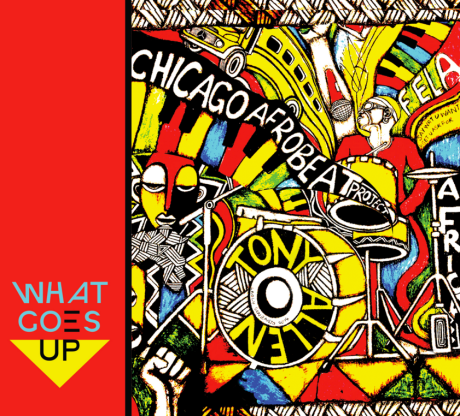This article originally appeared on Monolith Cocktail by Dominic Valvona.
 Starting life as a shifting collective of musicians jamming in a artist’s loft, channeling the fervor of Afrobeat’s progenitor Fela Kuti, the Chicago Afrobeat Project initially covered the Nigerian icon’s back catalogue before developing their own variant style. Transducing the sound of downtown Lagos and the Afro-Spot nightclub via the rich musical heritage of their own native metropolis, the group, now settling with a regular lineup, open the studio doors to embrace the city’s famous blues, soul, R&B, jazz, gospel, house and hip-hop culture.
Starting life as a shifting collective of musicians jamming in a artist’s loft, channeling the fervor of Afrobeat’s progenitor Fela Kuti, the Chicago Afrobeat Project initially covered the Nigerian icon’s back catalogue before developing their own variant style. Transducing the sound of downtown Lagos and the Afro-Spot nightclub via the rich musical heritage of their own native metropolis, the group, now settling with a regular lineup, open the studio doors to embrace the city’s famous blues, soul, R&B, jazz, gospel, house and hip-hop culture.
Expanding on and playing with the Afrobeat foundations but staying true to the roots of the African fusion that first merged the popular Ghanaian Highlife hybrid with funk and soul, the project members invite a number of vocalists and rappers from the area to enthuse, lead and prompt the music towards the political; reinforcing the main message and activism behind much of Kuti’s own, often dangerous, protestations and rebellious denouncements.
As if it wasn’t already enough, the Afrobeat ante is upped with the appearance of Kuti’s wingman and rhythm guru, Tony Allen. Showing those youngsters a thing or two, Allen brings certain levity, a craft and connection to the source, to this ten-track album. Flown in especially from his home in Paris, Allen, who’s also recently recorded a tribute album to Art Blakey (which he says fits in well with the Chicago Afrobeat Projects What Goes Up), doesn’t just turn up to add a roll and drum flair here and there, he plays on all the tracks, laying down the foundations, leading the way and rattles off his trademark polyrhythm shuffles, jazz timed syncopations and, most important of all, infectious grooves: the fight against injustice has never rarely so funky.
The elder statesman of Afrobeat, sounding almost effortless with his limbering and relaxed drumming, brings a sagacious quality to What Goes Up, though his comrades bring the bright and heralding horns, laser zappy synths, church organ and sunny Hammond sustained rays to the get-down.
Guests, of which there are many, on this sweltering and sauntering conscious album include a new jack swinging, bordering on gospel house style hook, protesting JC Brooks (Race Hustleand Sunday Song); an Igbo lullaby and Afro-futurist meets atavistic soul of Western Africa Oranmiyan (Cut The Infection, Must Come Down and Afro Party); the soulfully sassy, tumbling R&B songstress Kiara Lanier (No Bad News); and a metaphorical conversationalist style RicoSisney and Maggie Vagle (as sparring partner) of Sidewalk Chalk (Marker 48).
As Rico Sisney puts it on the skit for environmental justice, Marker 48: “Something’s gotta change!” And over the course of the album the collective tackle every kind of current injustice filling up the newsfeed: from the alarming murder rate in the inner cities, including Chicago’s own widely publicized tragic rates and by extension the Black Lives Matter campaign; racial profiling and harassment; tensions between communities; and of course, Trump.
Speaking Kuti fluently, channeling the Afrobeat totems and the most hustling, hot footing rhythms, the Chicago collective offer a unique take on the genre under the watchful eye of Tony Allen. Bridging two generations, adding some fresh licks and eclectic sounds from their own backyard, they do more than most in reenergizing the Afrobeat blueprint.
